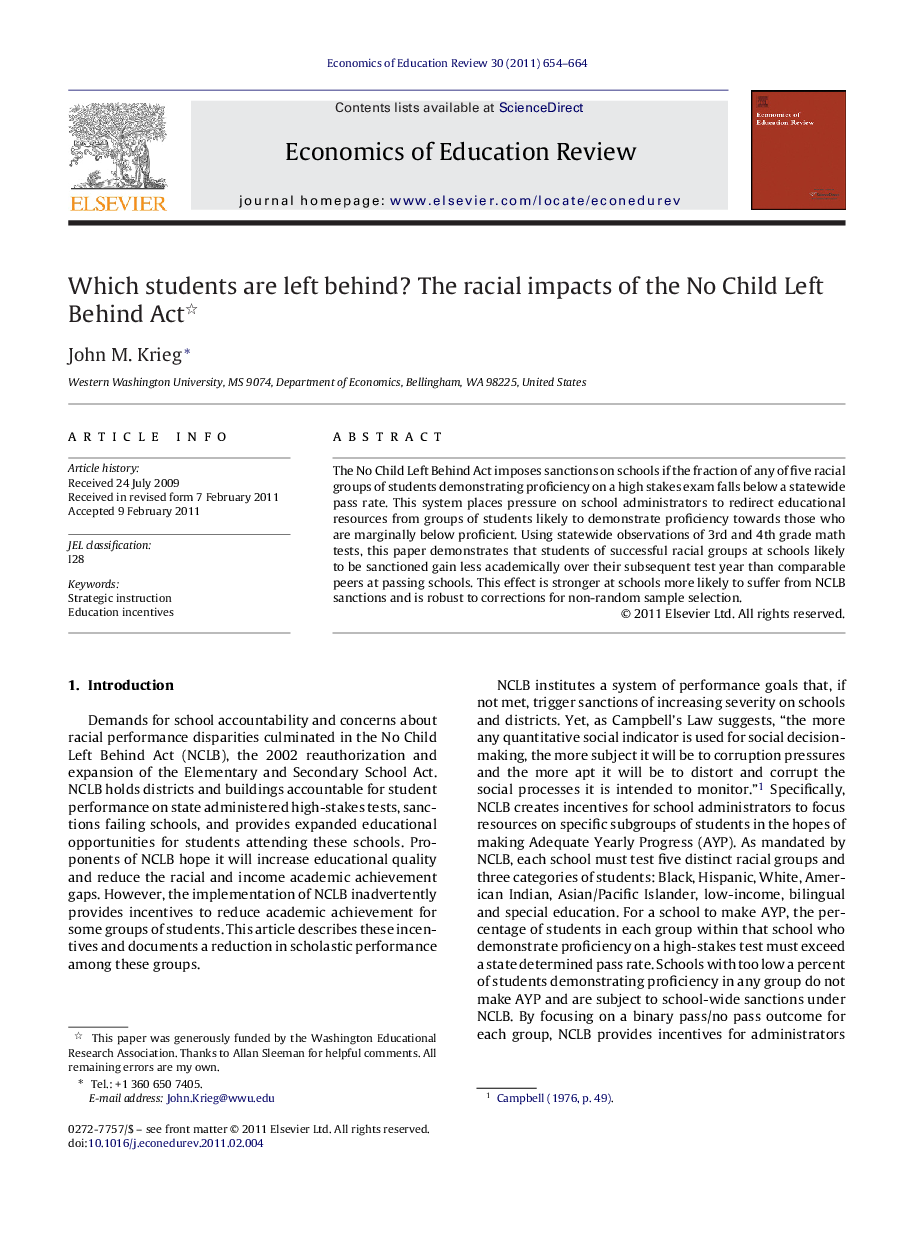| Article ID | Journal | Published Year | Pages | File Type |
|---|---|---|---|---|
| 354619 | Economics of Education Review | 2011 | 11 Pages |
The No Child Left Behind Act imposes sanctions on schools if the fraction of any of five racial groups of students demonstrating proficiency on a high stakes exam falls below a statewide pass rate. This system places pressure on school administrators to redirect educational resources from groups of students likely to demonstrate proficiency towards those who are marginally below proficient. Using statewide observations of 3rd and 4th grade math tests, this paper demonstrates that students of successful racial groups at schools likely to be sanctioned gain less academically over their subsequent test year than comparable peers at passing schools. This effect is stronger at schools more likely to suffer from NCLB sanctions and is robust to corrections for non-random sample selection.
Research highlights► Using statewide observations of 3rd and 4th grade math test scores, students of racial groups which made AYP at failing scores gain less than similar students at passing schools. ► Stronger effects are found at schools which face more advanced NCLB sanctions or schools that are, ex ante, likely to face sanctions. ► Results are robust to non-random sample selection.
